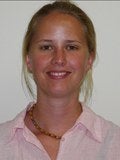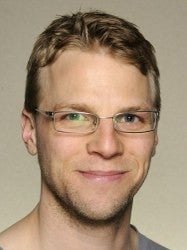Co-authors Anne Broadbent, Gus Gutoski and Douglas Stebila have a research paper accepted at the prestigious cryptology conference CRYPTO 2013, August 18 to 22
Institute for Quantum Computing (IQC) postdoctoral fellows Anne Broadbent and Gus Gutoski, along with IQC alumnus Douglas Stebila, have been accepted to present their paper Quantum one-time programs at the prestigious cryptology conference CRYPTO 2013 at the University of California Santa Barbara August 18-22. Cryptology is the study of coding patterns and histories, which includes cryptography (making codes) and cryptanalysis (breaking codes).
The paper shows that it is possible to build secure one-time quantum programs, even if used as part of a larger computer system that involves cryptography. A one-time program can be thought of as a hypothetical computational device which allows a user to run a program on an input of his choosing a single time. In other words, it takes an input such as an algorithm from the user, runs a program and then self-destructs, forever securing the information. These programs are made out of extremely simple classical devices called one-time memory devices (hypothetical hardware devices used to show the existence of classical one-time programs), together with quantum operation.
Broadbent, Gutoski and Stebila have been studying together since their undergraduate days in mathematics at the University of Waterloo. Broadbent, a CIFAR global scholar, has accepted a position as assistant professor in the Department of Mathematics and Statistics at the University of Ottawa. Gutoski completed his full-time postdoctoral fellowship at IQC and now shares his time between the Perimeter Institute of Theoretical Physics and IQC. Stebila is now a senior lecturer at the Queensland University of Technology in Australia.



Anne Broadbent, Gus Gutoski, and Douglas Stebila